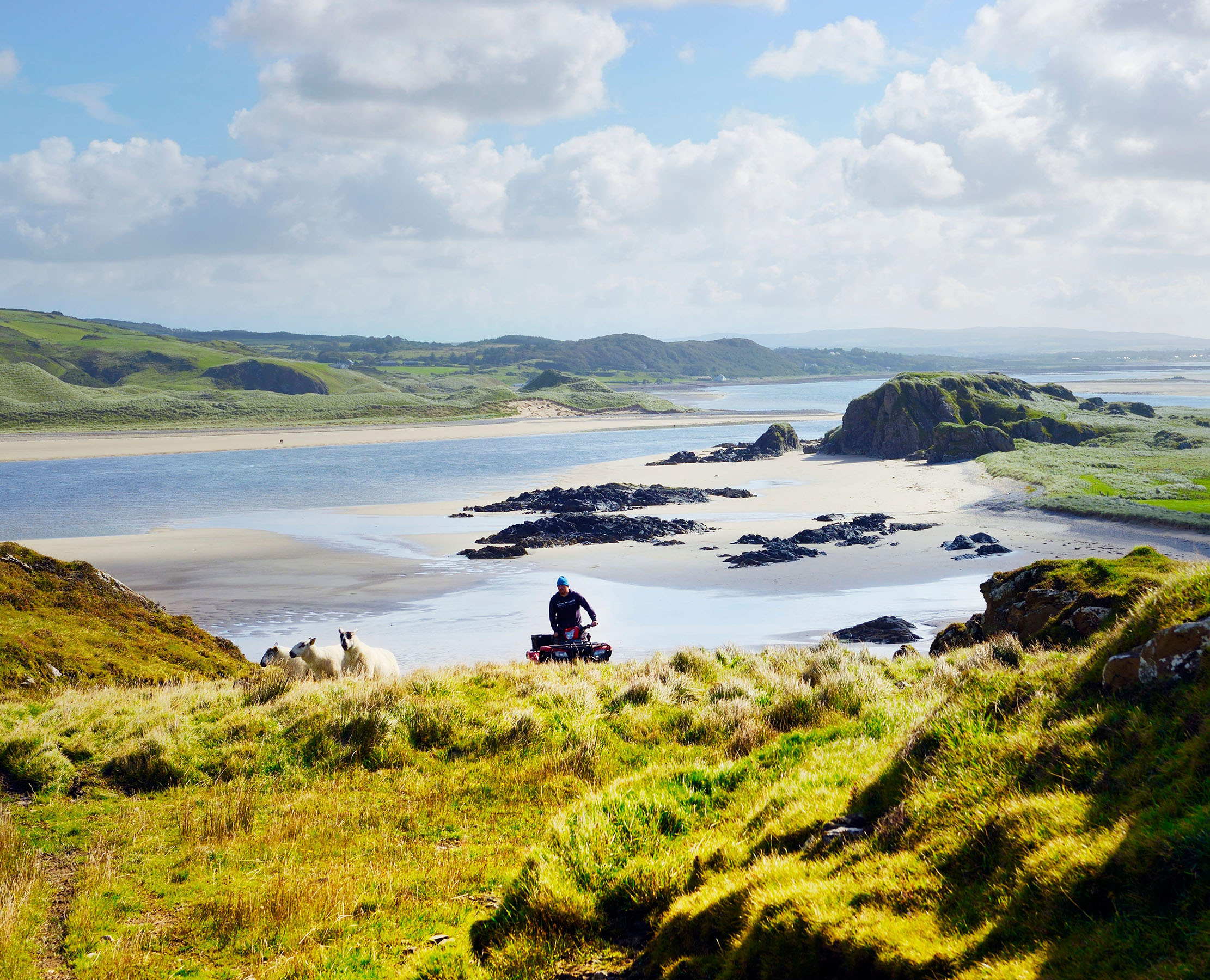Jonathan Self: The Irish words for a visit to neighbours, from airneál for a sing-song, bothántaíoch for telling old stories — and scoraíocht if you're there to gossip
Jonathan Self on airneál, fiosrú and why the Devil himself is the reason you shouldn't be picking blackberries any more — at least not according to his grandmother.


Officially, summer is over. Michaelmas — something of a moveable feast, falling on September 29, or the 9th, or even October 10 according to fancy — marks the beginning of autumn. You wouldn’t have known it a couple of weeks ago, as Oliver and I, burdened with farm implements, dragged ourselves up the hill behind the house in the heat.
According to the Irish-speaking members of my family, there are at least a dozen words to describe a visit to neighbours. If it is a night visit, the purpose of which is to sing and dance by the fireside, then it is an airneál. The term bothántaíoch is used when you go to hear old stories, scoraíocht if you are there to gossip and — one of my personal favourites — fiosrú if the purpose of your call is the extraction of information.
There is no specific word, however, to describe the exchange of a morning’s labour harvesting for a share of the crop, although there is a relevant expression: ‘Ar scáth a chéile a mhaireann na daoine,’ which translates as: ‘Under the shelter of each other, people survive.’
This is true everywhere, but particularly so in a remote rural area such as this. It is rare enough nowadays to see our whole community working as one to, say, make the hay or win the turf, but groups of neighbours still willingly come together to help each other out. It is far from being a thankless task: Oliver and I returned homewards with a huge box of fresh produce.
As we descended the hill, we stopped to admire the view (the sea a glorious blue, waves flashing silver in the sun, shoreline rocks splashed with orange and white lichen, islands covered in purple heather and yellow gorse, fields a shiny green as if they had been varnished, and over everything a celestial, golden light) and to pick blackberries. ‘You ate that first one and its flesh was sweet/Like thickened wine: summer’s blood was in it,’ wrote Seamus Heaney about blackberrying. ‘Leaving stains upon the tongue and lust for/Picking.’
My grandmother believed it was risky to pick blackberries after Michaelmas, because it was the day Lucifer had been expelled from Heaven and, landing in a briar patch, had cursed the fruit so that it became poisonous.
For her, the day was of considerable religious significance. One attended divine service, distributed food, known as St Michael’s portion, to the poor, made chains of late-flowering asters, often called Michaelmas daisies, and enjoyed a St Michael’s Bannock, a sort of fruitcake. My grandmother believed: ‘If Michaelmas Day be bright and clear there will be two winters in the year.’
Exquisite houses, the beauty of Nature, and how to get the most from your life, straight to your inbox.
I like the idea of four (or, if my grandmother’s prediction is correct, five) neat seasons, but Nature is less tidy. On the estuary below the house, we have a colony of shelducks, which traditionally do a sort of mudflat swap at this time of year. The breeding pairs head over to the Baltic to moult, leaving their young behind in the care of a kind of communal nanny.
Meanwhile, European shelducks visit us here. Later in the winter, each small group returns to its own breeding grounds. Intriguingly, the reunited parents and offspring are able to recognise each other perfectly, despite the absence.
This is not, as an aside, the only unusual thing about shelducks: they nest in rabbit burrows. Anyway, our shelducks are still at home, paddling in the warm sea and enjoying the sun. Officially it is autumn, but apparently not if you are a shelduck.
After trying various jobs (farmer, hospital orderly, shop assistant, door-to-door salesman, art director, childminder and others beside) Jonathan Self became a writer. His work has appeared in a wide selection of publications including Country Life, Vanity Fair, You Magazine, The Guardian, The Daily Mail and The Daily Telegraph.
